If you want to learn how to make music for video games, you’ve come to the right place. As the title may have suggested, we’re going to provide you with the ultimate guide to composing music for video games and compiling the perfect soundtrack for your game.
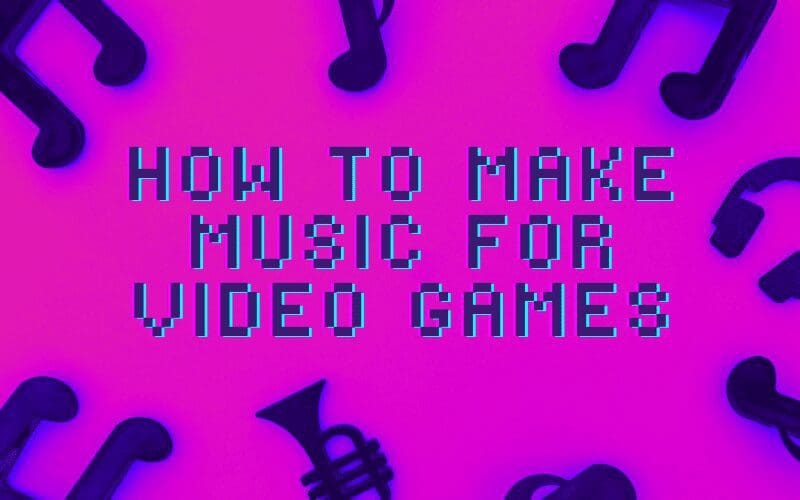
We’ll have a look into what elements make good video game music. The kind that stays with you, the songs you hear and instantly think, ‘Oh, that’s in ‘so-and-so’. The kind of music that is memorable, emotive, and intimidating.
We’ll also discuss how to get into composing music for video games because often the first step is the hardest. But that’s why we’re here, so let’s begin.
Remember to stay tuned until the very end so you don’t miss out on any key information!
What Makes Good Video Game Music?
Video game soundtracks or musical components of any given game are a necessary tool in creating an unforgettable experience for players. Music acts like a time stamp on our memories.
When you hear a song or piece of composition you recognize, you are transported back to the time and place you heard it.
You remember the exact moment you were playing that particular game, how it made you feel, what room in your house you were playing it in, and maybe even what the weather outside was like.
Whether we like it or not, music becomes ingrained in our minds, so we’d better like what we’re hearing, right?
So what can you do to guarantee that players have a positive experience? There are several elements you need to consider when thinking of composing music for video games.
Depending on the type of game, some might not be relevant. But as a composer, it is important to understand why they are necessary for success.
So what makes good video game music? Let’s dive in!
How To Make Music For Video Games – Fully Immersive Experience
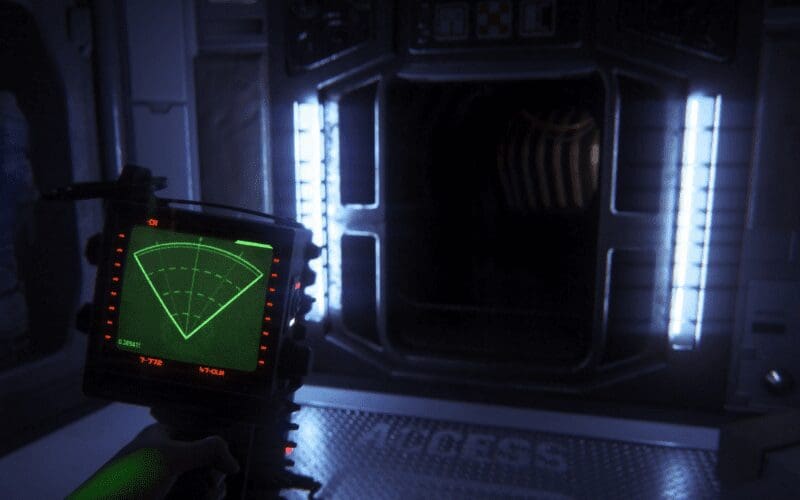
When putting together a soundtrack, whether that means compiling a tracklist of pre-recorded songs or composing brand-new pieces of music with physical instruments in a recording studio, you have to think of the overall experience for players.
Consider how they will be playing it, how many screens they’ll play on, and whether they’ll be wearing headphones or not if the lights are on or off. Most people would play a horror survival-like game Alien: Isolation cloaked in darkness to get a feel for the first-person experience.
In comparison, a building and simulation game like Planet Zoo might be better experienced in daylight to enhance productivity.
When composing a soundtrack, you’ll need to play the game first. Think about what you’d like to be feeling throughout. What real-world echoes you might like to hear throughout the soundtrack?
If something is set in the wilderness, think about representing the sound of crickets, or a desert setting might reflect the sound of the wind. Check out the official soundtrack for Journey as a great example of this.
The aim of your sound expedition is to create something that can be vividly imagined in the mind’s eye without any visuals at all. To have players close their eyes and be able to see the game simply through the music.
It takes real genius to create a fully immersive soundtrack, but we know you’re well capable of it.
Suspension Of Disbelief
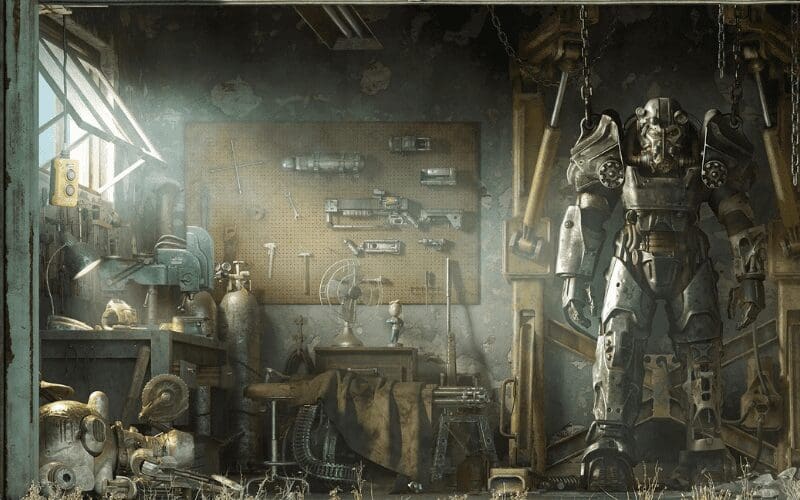
Suspension of disbelief is a technique used most often in filmmaking where audiences are made to forget about their surroundings and set their focus entirely on what they are viewing. It enhances the experience.
Viewers are made to feel as though they are in the film, walking alongside the characters, caught in the crossfire. As the lights come back on, they are transported back to the real world reeling from the experience.
Suspension of disbelief is conducted successfully through visuals, surroundings, and music. Transfer this technique to gaming and it’s not that different at all, it might just take a bit more work. Watching a film, you would typically take two or so hours out of your day to sit down and watch.
For gaming, you might be in and out of the room, pausing and restarting, accidentally putting down the controller, and not picking it back up for days.
But as players, we expect to be thrown right back into the suspense from the get-go, regardless of how long it’s been since we last played. Part of this suspense is built through the soundtrack which you will be responsible for, and it needs to pack a punch.
Disregarding the music itself, the surround sounds, background noises, and even the breeze have to be spot on.
Fallout 4
For example, think of Fallout 4. Diamond City Radio is always banging out the tunes, but turn it off for a few moments and you hear the real sounds of the commonwealth. The wind, the water, the quiet instrumental music.
Even when wandering a barren, toxic wasteland, the music is perfect. It captures the loneliness and almost peaceful atmosphere which contrasts beautifully with the voices of Roy Brown and Billie Holiday.
Fallout 4 is ridiculously replayable, and yet every time we pick up the controller, whether you’re continuing your gameplay or restarting, you’re thrown right back into the experience as if you never left.
Pathetic Fallacy
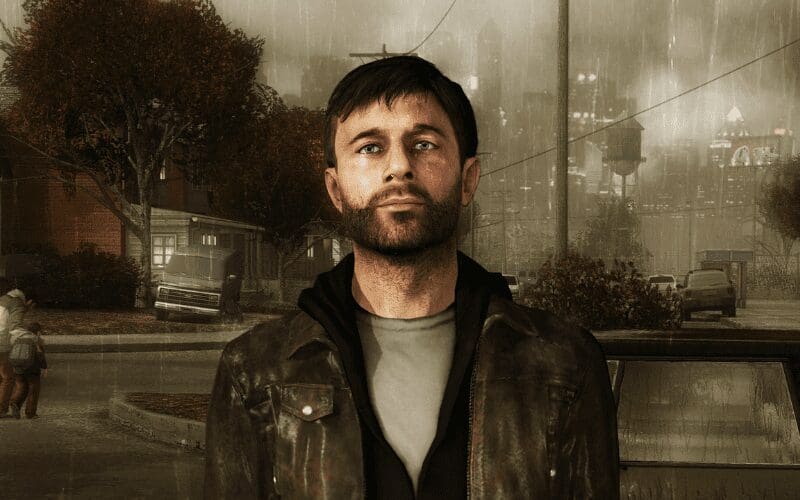
Pathetic fallacy is a literary term that signifies how our emotions reflect our surroundings and the weather in particular.
For example, authors often describe rainfall when a character is sad, sunshine for happiness, and thunder for anger. It’s the idea that we are one with nature, and it is a technique that is often transposed into gaming.
Heavy Rain
In games where the weather plays a significant role, such as Heavy Rain, the music changes to suit its surroundings. Heavy Rain composer Normand Corbeil created a rather depressing (and rightfully so) soundtrack for a game that focuses on child abduction, love, and loss.
For a game so influenced by the weather, he had to tackle the sound of rain. He did not use the standard sound of raindrops falling on windows or pavements but rather the feeling of rain and the emotion of rainfall.
The light touch of the piano and the quick succession of notes signify raindrops, The long drawn-out strings reflect the misty veil left in the air after a heavy downpour. Listen to the OST on Spotify and you’ll see what we mean.
Meanwhile, take a look out the window and observe the weather. Imagine what it might sound like if you were trying to describe it to someone using musical instruments only.
When composing music for video games, use the world around you to your advantage. Let it be your muse. If you’re stumped, go for a walk. Take in your surroundings and you might just find some inspiration.
How To Make Music For Video Games
When thinking about how to make music for a video game, you should think about the game design process as a whole. Think about who you will be working in conjunction with, namely the game designers, developers, and producers.
Let’s discuss what’s involved when composing music for video games.
Understand The Assignment

Like any role, you’ll need to understand the assignment when music composing for video games. In this case, that means understanding the game by playing it as well as discussing it with other members of the game development team.
As part of the team, you will need to follow the wishes of the designers and create a soundtrack that accurately reflects what they envisioned when designing the game.
Likewise, the developers and producers will have their own ideas of what the game should look and sound like by the end. So you should frequently liaise with them and make sure every aspect of the game’s design is working in harmony.
Find Your Sound
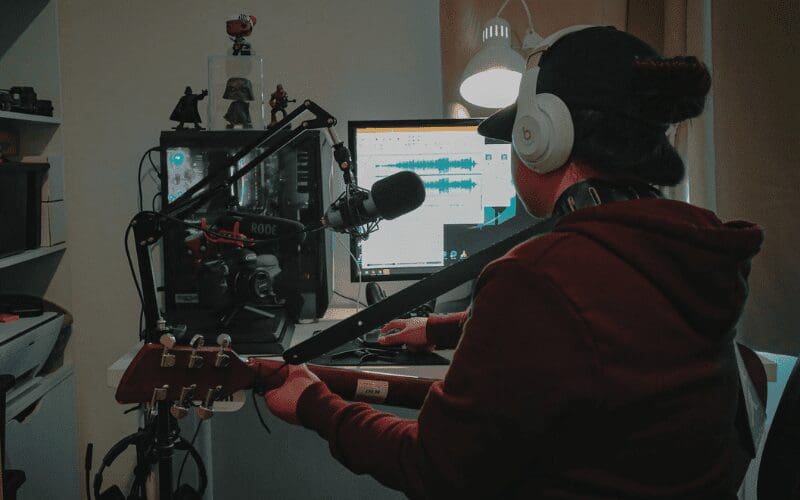
Much like a singer finds a genre that suits their voice, it’s important to find your own groove as a composer. What instruments to work well with, what keys do you like to compose in, and all the technical elements involved in composing music?
Check out this article on How To Become A Video Game Composer for more information on this.
First Notes

Getting started is often the hardest part. So when you’re playing the game for the first time, think about what the chapters, action sequences, cutscenes, or landscapes might sound like. Would a high C be better than a low C? The key of A flat rather than A sharp?
Think about what chord progressions might suit a melancholic scene or a joyous one.
Whether you’re well versed in writing sheet music or you’d rather record yourself humming a tune, make a note of what you’re feeling. You can go back to it later with a fresh mind and elaborate on what you’ve written so far.
Putting Together A Piece

Rome wasn’t built in a day, nor was Mozart’s Fifth Symphony composed in an hour. Much like everything else, composing music takes time and effort. But it’s worth it in the end. When putting together a piece of music, you might approach it like you would an essay.
Map out the introduction, the middle section, and the ending. Will there be a climax where all instruments reach a crescendo? If so, will it be featured in the middle or at the end? How dramatic should the intro be?
This all depends on the scene you are composing music for or the character you are trying to represent. The idea is to describe parts of the game through melody alone. You won’t have words at your disposal, but you’ll have the language of sound.
If you work in segments, slowly but surely a piece will form.
How To Make Music For Video Games – Compiling A Soundtrack
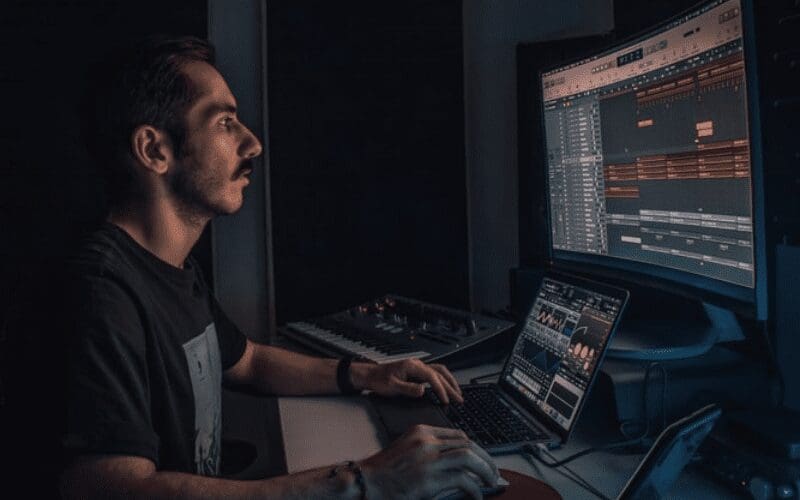
If you’re the only person working on the soundtrack, you’ll be responsible for composing several different pieces in a soundtrack. Some games feature the same or similar tracks with variations throughout.
Other games feature significant piece after piece, each demonstrating completely different formats, keys, tempo, duration, and so on.
If it seems daunting, take it one step at a time. After playing the game, choose any characters or locations you particularly liked and begin composing sounds for those.
If you prefer a ‘challenge reaps the reward’ setup, you could start with those you weren’t particularly fond of and work your way up to your favorites.
Naming Your Tracks
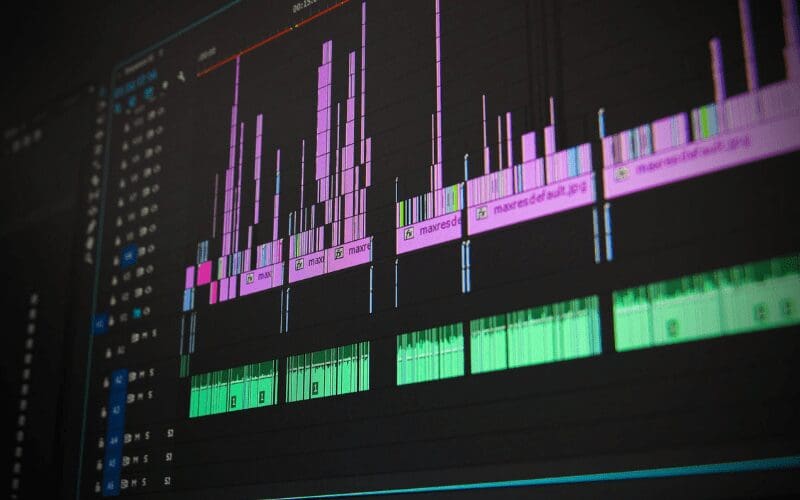
The titles of your tracks should be chosen carefully. Bear in mind, they should be descriptive enough to indicate where they are located in the game, but not so descriptive that they become a spoiler.
For example, a track entitled ‘The End of the Road’ might hint at the end of something or someone without giving anything away, whereas ‘Marienne’s Death’ would be blatantly obvious. See the difference?
Overall Flow
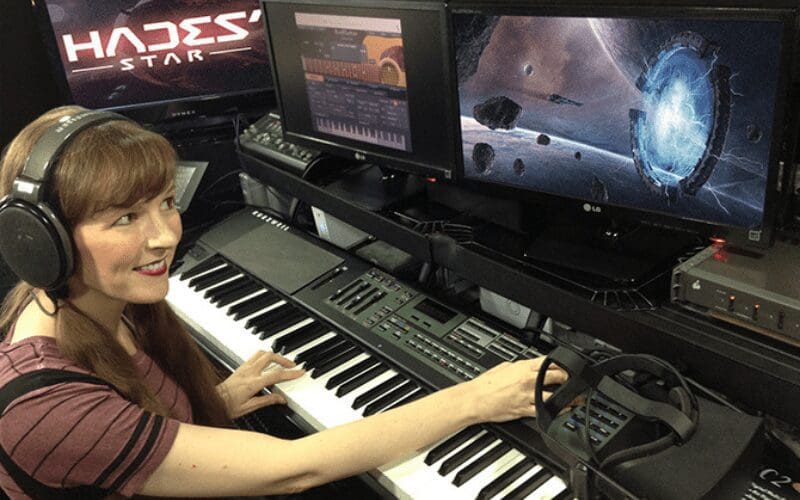
It’s of the utmost importance that the soundtrack of a game flows. Avoid anything outlandish or unorthodox with regard to the mood or tone of the game overall. The soundtrack should tell the story just as much as the game’s visuals do.
Your listeners should be able to head to Spotify, play the OST from start to finish and understand the essence of the story without playing the game.
A game would be inconsequential without an incredible soundtrack, and as a video game composer, you will be responsible for this. You are a storyteller, a creative, and a guiding presence for players.
Remember this when listening to your soundtrack as a whole, and make sure it flows with ease.
How To Get Into Composing Music For Video Games
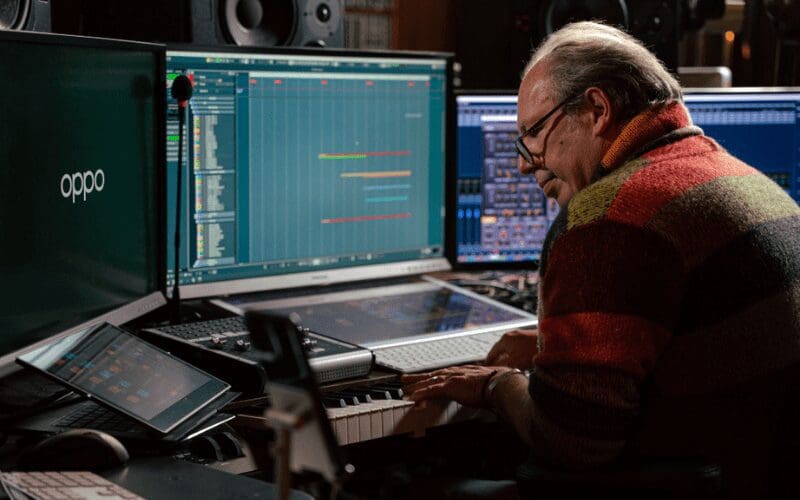
So, you must really want to make music for video games if you’ve gotten this far. Here’s a bit of good news then: there are plenty of ways to do it!
Whether you’ve been playing an instrument since you were three years old, or you saw Hans Zimmer live and decided you want to be a composer, there’s something for everyone here.
Let’s look at how to get into composing music for video games.
Music-Making Software
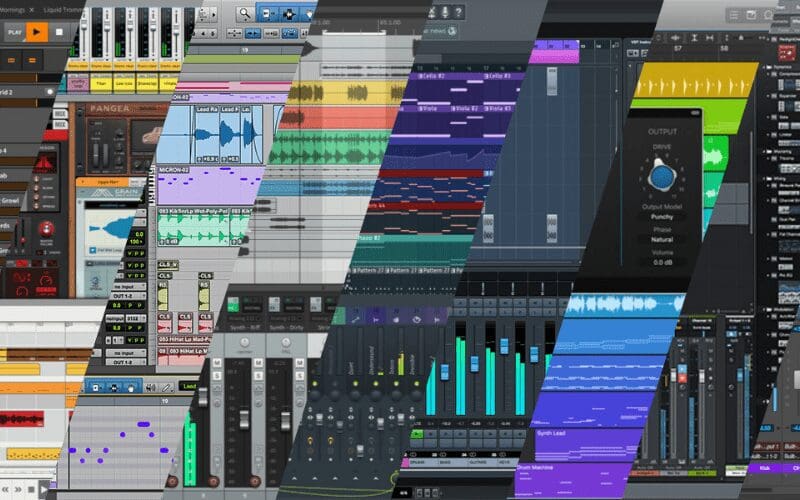
Unlike Mozart and Bach who relied solely on actual music instruments, you also have access to digital audio workstations. These software programs allow you to compose, record, mix, and edit music all in one place, and all on your own.
If you’re looking to learn how to make video game music for free or would prefer to pay for a DAW rather than a four-year university course, we’ve got some pointers for you.
You won’t need a teacher or a college degree to use DAWs, although you might need to watch some tutorials on YouTube. They are not something you just instinctively know how to use. Just like any digital software, you’ll need to practice.
There are both paid and free software platforms available. Some of the best free ones include Audacity, Garageband, and LMMS. However, they are free for a reason. Some are missing key features, others are just an older version of the paid one.
Free versions are a great place to start. You will get a feel of the interface and its features without paying a thing. If you’re content, you could commit to the upgraded version for a fee if it’s available, or sign up for alternative paid software.
There are plenty out there, just make sure and do your research before making a definitive choice.
University Degree

If you’d rather not start out completely blind, maybe you’ll consider a university degree. You might want to do a course that focuses on music theory where you learn to read and write sheet music, be that traditionally putting pen to paper or through the use of a digital platform.
This will depend on the university you enroll in, what facilities they have on offer, and what method of sheet music you prefer to work with.
Do your research and look at the course outline before you enroll, it might specify what kind of systems you’ll be using.
Other degrees include music performance, music production, and creative music production. In these courses, you would work directly with DAWs gaining practical, real world experience and learning the ins and outs of music production as a profession.
Internship

Some courses offer or assist placements or internships with music production companies such as Sony Music Entertainment, Universal Music Group, or some of their lesser-known affiliates. If you’re not currently enrolled in a course, take matters into your own hands.
Approach these music production companies directly and see if they’re offering any internship programs. Some run throughout the year, others only seasonally so make sure to keep an eye out.
The duration of these placements can vary from 1 month to 3 months, 6 months to a year.
Short or long, they are definitely worth putting in the time and effort. You might be in for a chance to study abroad and secure a placement located within the UK, Europe, or even the USA.
Play your cards right with the company and they might just offer you a permanent position at the end of your studies.
Professional Work
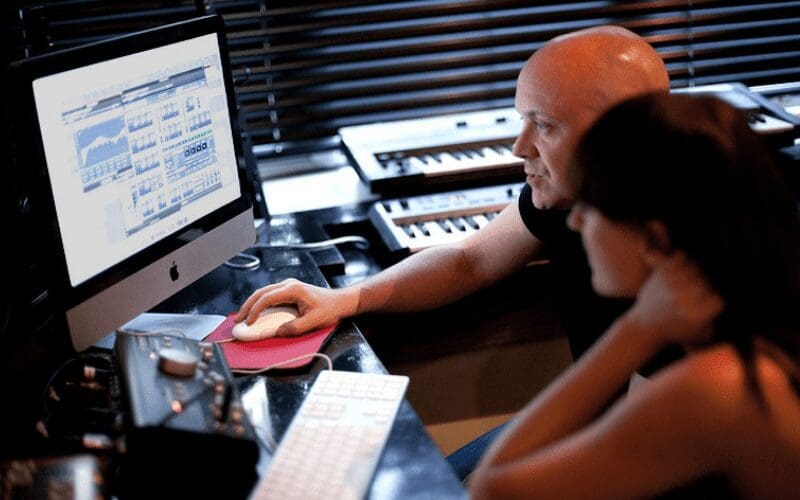
While many internships may not pay, they are a great gateway into the professional world of music production.
Before you create entire scores and soundtracks for games, you might need to build a sound portfolio or get some real-world experience producing music.
Try to find opportunities to create jingles for TV commercials or intro sounds for podcasts. You could work as a DJ or produce a segment on your favorite radio station. These are perfect ways to get some experience and earn a bit of cash too.
Any music you produce is a step toward your goal of producing music for video games.
If you’re looking for a job directly in music production, check out sites like LinkedIn and Indeed where many companies, big and small, post vacancies. Read the job specifications carefully because some job titles are cloaked in ambiguity.
A ‘creative producer’ or ‘content creator’ might just be a music producer in disguise.
Even working as an administrative assistant to a music producer would be a great start and not an opportunity to turn your nose up. Working in such close proximity to industry professionals might have its perks in the future.
Now You Know How To Make Music For Video Games

If you’ve reached the end of this article and you’re still interested in how to make music for video games, then we’ve succeeded in doing our job… Hopefully, we’ve provided you with some guidance as to how you can make this happen.
Open a new tab now and start your research. Look up college courses for music production or research a few different DAWs. Start up your console and play a few different games.
Pay special attention to the soundtrack and background sound elements featured, you might learn a thing or two. You might even be inspired to write your first piece.
There’s no better time to start than now, so get going! Who knows, in the next few years you might be composing the music for all the top video games. Perhaps even for the new Naughty Dog game. Dream big, work hard and anything is possible. Best of luck!
Have you created a video game soundtrack before? What was your experience? Be sure to let us know in the comments below. If you enjoyed this article, why not share it on social media? Be sure to tag us @musicgateway.
If you enjoyed this article, why not check out another on our blog? Here are articles on The Best Video Game Soundtracks, Video Game Composer Guide, and How To Become a Game Journalist to get you started?









